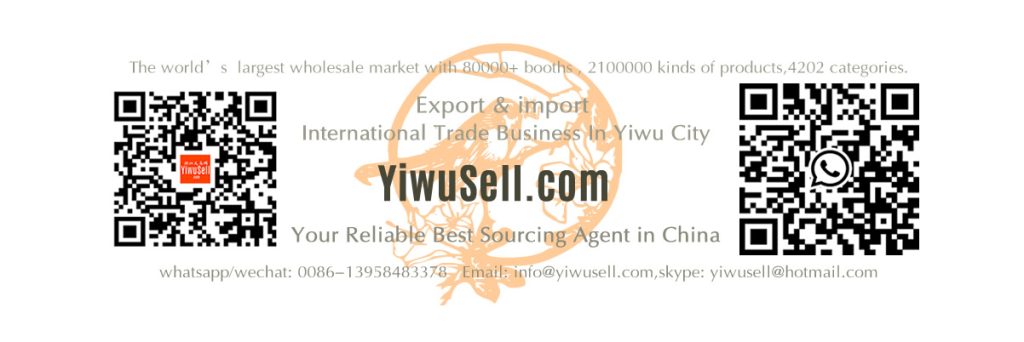Yiwu Market: The World’s Biggest Wholesale Market in Yiwu, China
I want to import goods from Yiwu International Trade City.
Yiwu City, located in Zhejiang Province, China
Why so famous is Yiwu City of China in the world?
Yiwu International Trade City: A Shopper’s Paradise
Where is Yiwu Wholesale Marke
Yiwu City Transfer to Hangzhou Xiaoshan International Airport
Yiwu Airport Private Arrival Transfer to City Area
Yiwu Railway Station Private Departure Transfer from City Area
Are you planning a business trip to Yiwu
Look around Yiwu wholesale market
Where is Yiwu International Trade City?
Yiwu International Trade City is the world’s largest small commodity wholesale market
Where can I buy cartoon keychains?

Yiwu City, located in Zhejiang Province, China, is famous globally for several reasons, primarily related to its role as a major hub for international trade and commerce.
Finding importers in the United States can be a bit of a challenge, but there are several ways to do so. Here are some methods to help you get started:
1. **Import/Export Databases**:
* The U.S. Census Bureau’s Foreign Trade Database (FTD): This database provides detailed information on U.S. trade, including import and export data by product, country, and company.
* The International Trade Administration’s (ITA) Trade Data: This database offers trade data, including import and export statistics, as well as information on U.S. companies that import and export goods.
2. **Industry Associations and Trade Organizations**:
* Reach out to industry associations related to your product or industry (e.g., National Retail Federation, National Restaurant Association). They often have lists of member companies that import products.
* Attend trade shows and conferences related to your industry to network with potential importers.
3. **Online Directories**:
* Thomasnet: A comprehensive B2B marketplace that connects buyers and suppliers.
* USA Trade Online: A database of U.S. importers and exporters.
4. **Government Agencies**:
* The U.S. Customs and Border Protection (CBP): Provides information on imports and exporters through their Entry Summary System (AES) database.
* The Federal Trade Commission (FTC): Has a database of businesses that import and export goods.
5. **Social Media and Online Communities**:
* Join online forums, groups, and social media platforms related to your industry or product to connect with potential importers.
6. **Trade Missions and Trade Shows**:
* Attend trade missions organized by government agencies, industry associations, or Chambers of Commerce to connect with potential importers.
7. **Local Trade Councils and Chambers of Commerce**:
* Contact local trade councils and Chambers of Commerce in the regions you’re interested in targeting to get leads on potential importers.
When searching for importers, make sure to:
1. Use specific keywords related to your product or industry.
2. Filter results by country (USA) or region (e.g., West Coast) to focus on domestic importers.
3. Verify the credibility of potential importers by researching their reputation online or contacting them directly.
4. Be prepared to provide detailed product information, pricing, and logistics requirements to attract potential importers.
Remember that finding the right importer may take time and research. Be patient, persistent, and flexible when approaching potential partners. Good luck!
